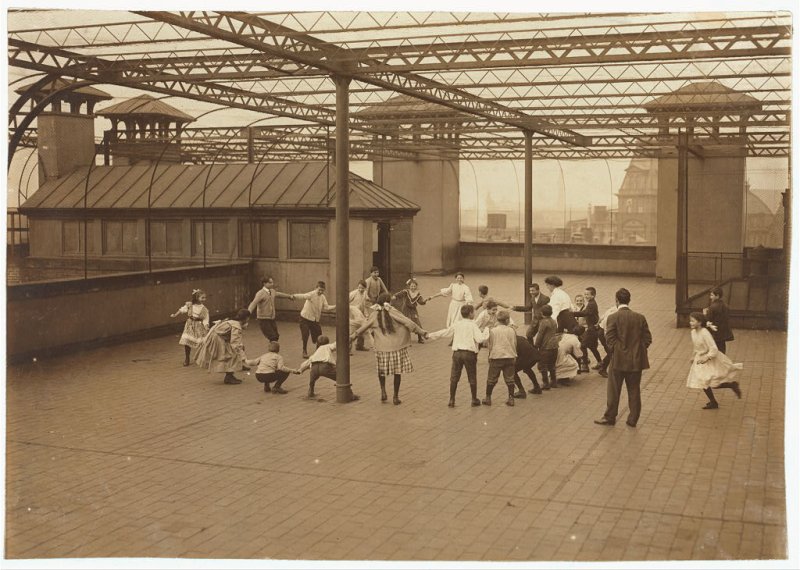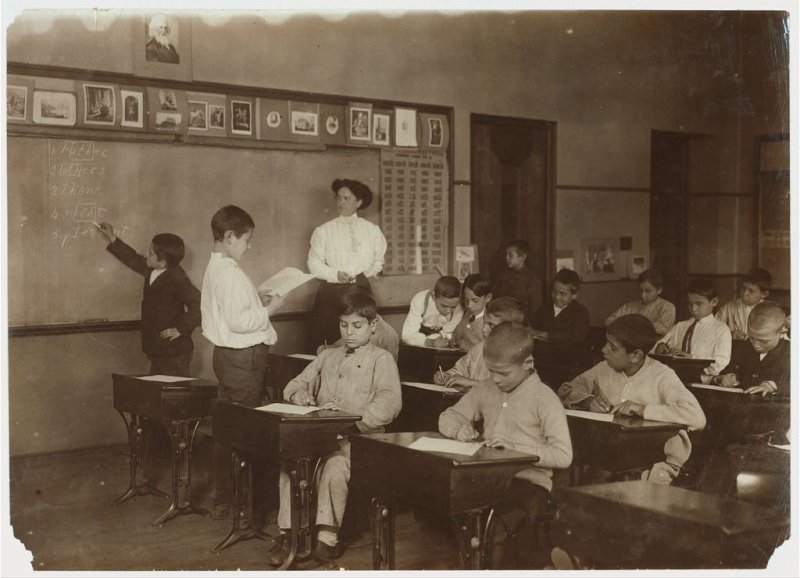The "Minor Child" Rule - What it means & Who is affected

One of the first questions that comes to mind when determining the qualification requirements for Italian citizenship is whether the Italian-born Ancestor was a minor when he or she left Italy.
Children who were born in Italy and migrated to the U.S. with their parents most likely became American citizens at the same time their father did before they turned 21 years old. NOTE: Until 1975, the age of majority in Italy was 21.
This means that your Italy-born child ancestor effectively renounced his or her right to Italian citizenship as a minor and was unable to pass Italian citizenship by descent (jure sanguinis) to his or her children as an adult. No exceptions are made in these cases.
There are instances where even if your Italian-born ancestor came over as a child, he or she became a U.S. citizen as an adult. However, to qualify for Italian citizenship by descent, you have to make sure the naturalization date occurred after the birth of the next in line child born here in the U.S. and after July 1, 1912.
This can be quite confusing, we know, but if you are you still with us, let’s take a minute to analyze other nuances that may make the “minor” rule a big obstacle to Italian dual citizenship.
While what we described above applies to minor children born in Italy, if your Italy-born adult immigrant ancestor later had children born here in the U.S. and this Italian ancestor became a naturalized U.S. citizen AFTER these children were born, then the children inherited the Italian Citizenship rights which are then passed down to their descendants without any interruption. The “minor child” rule doesn’t apply in this case.

Why is that? If minor children were born in the U.S., based on the U.S. Constitution (the 14th Amendment), they were U.S. citizens by birth. The Italian law 555/1912 (Art. 7) clearly states that if the child of an Italian immigrant was born in a foreign country and therefore was a citizen of that country by the principle of ius soli (the right of anyone born in the territory of a state to its nationality or citizenship), that child can maintain his or her rights to Italian citizenship. This Article 7 of the 1912 Citizenship Law was written for the sole purpose of allowing the descendants of an Italian immigrant to keep a live link to the land of their ancestors: Italy. Smart thinking…
The good news is that Italian Consulates here in the U.S. are interpreting the law correctly and as long as all other conditions are met: your Italy-born ancestor was still an Italian citizen at the time of the birth of his son or daughter here in the U.S., i.e. did not naturalize before their birth (if applicable, the 1948 Rule for descendants of female ancestors has to be satisfied as well), minor children born in the U.S. have inherited their rights to Italian citizenship which are passed down to their children and grandchildren.

However, for those of you who are applying either in Italy (because you are moving there permanently), or through the Italian Courts (because you are the descendant of a female ancestor and need to challenge the 1948 Rule), you may face a roadblock when it comes to this issue. The minor rule may be applied even to children born in the U.S.; judges, town hall officials, and/or Italian Consulates in other countries may deny Italian citizenship by giving a more restrictive interpretation of law 155/1912 (Art. 12), where no transmission of Italian citizenship is allowed if the child (born in the U.S.) was still a minor when the parent became a U.S. citizen. Some decisions have been successfully challenged through the appellate courts in Italy.
Although, the law is designed not to leave too much space for interpretation, hiring a firm to assist you throughout the entire Italian dual citizenship process may be very helpful.
Finally good news for applicants for Italian citizenship who have “minor” children! Minor children become Italian citizens automatically with you at no additional cost. You will have to present to the Italian consulate their birth records, issued in long form, certified, apostilled and translated to Italian.
Overwhelmed by the whole process? At My Italian Family, we don’t just give advice, we handle all the purchasing and preparation of your entire portfolio of documents, whether you apply at an Italian Consulate here in the U.S. or you apply in Italy (including 1948 Challenge Courts Cases). Our experience spans the past 20 years, and we have expert knowledge of what each Italian Consulate requires, as well as what the town-halls in Italy and the Italian Courts require. TO GET STARTED AND FOR MORE INFORMATION, CLICK HERE.
Questions? Book your FREE Consultation at your convenience.
© 2022 MY ITALIAN FAMILY, LLC. All rights reserved.
